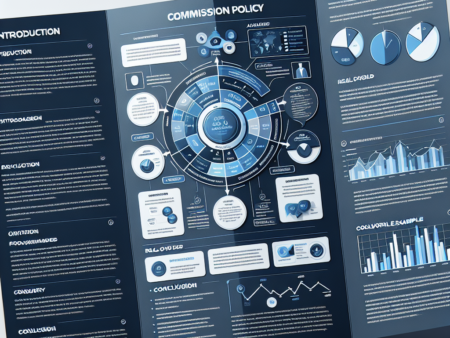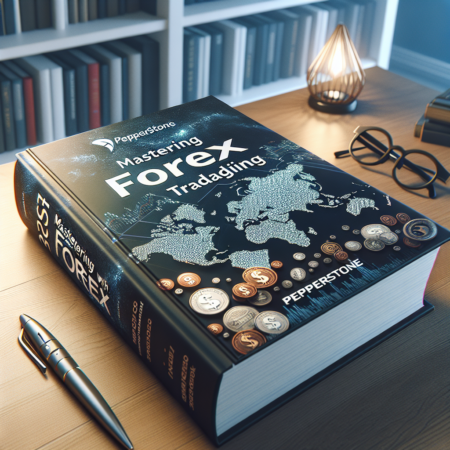Broker Comparisons: Fees and Features
Choosing the right broker is a pivotal decision for any investor or trader. With the plethora of options available, understanding the nuances of broker fees and features can make a significant difference in your trading success and overall financial health. This comprehensive guide delves into the essential aspects you should consider when comparing brokers, ensuring you make an informed choice that aligns with your financial goals.
Why Comparing Brokers is Important
Not all brokers are created equal. Factors such as fees, trading platforms, customer support, and available resources can vary widely among brokers. By conducting thorough comparisons, you can identify a broker that not only offers competitive pricing but also provides the tools and support necessary to facilitate your trading strategy.
Key Features to Compare
Trading Platforms
The trading platform is your primary interface with the financial markets. It should be intuitive, reliable, and equipped with the tools you need to execute trades efficiently. Consider the following when evaluating trading platforms:
- User Interface: A clean and user-friendly interface can enhance your trading experience.
- Charting Tools: Advanced charting capabilities help in technical analysis.
- Mobile Access: The ability to trade on-the-go is increasingly important.
- Customization: Platforms that allow personalization can better suit your trading style.
Account Types
Brokers offer various account types tailored to different trading needs. Common account types include:
- Standard Accounts: Basic accounts with essential features for beginners.
- Premium Accounts: Enhanced accounts offering lower fees and additional services.
- Retirement Accounts: Accounts like IRAs that provide tax advantages.
Customer Support
Reliable customer support is crucial, especially for new traders. Evaluate brokers based on:
- Availability: 24/7 support can be invaluable in volatile markets.
- Channels: Multiple support channels (phone, email, live chat) enhance accessibility.
- Expertise: Knowledgeable support staff can help resolve issues swiftly.
Tools and Resources
Educational tools and resources can significantly impact your trading proficiency. Look for brokers that offer:
- Webinars and Tutorials: Continuous learning opportunities.
- Market Analysis: Access to expert market insights and analysis.
- Trading Calculators: Tools that assist in calculating potential returns and risks.
Education Materials
For those new to trading, comprehensive education materials are essential. Consider brokers that provide:
- Beginner Guides: Step-by-step guides to help you get started.
- Advanced Courses: In-depth courses for experienced traders looking to refine their strategies.
- Glossaries: Easy access to financial terminology.
Fees to Consider
Commission Fees
Commission fees are a standard charge for executing trades. Brokers may charge a fixed fee per trade or a percentage of the trade value. It’s essential to compare these fees, especially if you plan to trade frequently.
Spread Costs
The spread is the difference between the buying and selling price of an asset. Tighter spreads can lead to lower trading costs, which is particularly important for short-term traders.
Deposit and Withdrawal Fees
Some brokers charge fees for depositing or withdrawing funds. Look for brokers that offer free deposits and withdrawals or have minimal charges to maximize your investment.
Inactivity Fees
Inactivity fees are charged if there’s no trading activity over a specified period. If you’re a long-term investor, ensure your broker doesn’t impose such fees.
Other Hidden Costs
Be aware of other potential costs, such as account maintenance fees, data feed fees, or fees for additional services. Always read the fine print to avoid unexpected charges.
Top Brokers Compared
Broker A
Broker A offers a robust trading platform with low commission fees and a wide range of educational resources. Their mobile app is highly rated, and customer support is available 24/7 through multiple channels.
Broker B
Broker B is known for its tight spreads and advanced charting tools. They provide various account types, including retirement accounts, and have a strong focus on customer education.
Broker C
Broker C stands out with its comprehensive market analysis and trading calculators. They offer competitive deposit and withdrawal options with minimal fees, making it a favorite among both beginners and experienced traders.
How to Choose the Right Broker for You
Selecting the right broker involves evaluating your trading style, frequency, and specific needs. Here are some steps to guide your decision:
- Assess Your Needs: Determine what features and services are most important to you.
- Compare Fees: Analyze the fee structures of different brokers to find the most cost-effective option.
- Test Platforms: Utilize demo accounts to get a feel for the trading platforms.
- Check Regulation: Ensure the broker is regulated by reputable financial authorities.
- Read Reviews: Look for feedback from other traders to gauge the broker’s reliability and service quality.
Conclusion
Comparing brokers is a critical step in building a successful trading strategy. By thoroughly evaluating fees, features, and overall service quality, you can select a broker that not only meets your trading needs but also supports your financial growth. Take the time to research and compare, and you’ll be well on your way to achieving your investment goals.
Frequently Asked Questions
- What are the most important features to look for in a broker?
- The most important features include a reliable trading platform, competitive fees, excellent customer support, and comprehensive educational resources.
- How do broker fees affect my trading?
- Broker fees can significantly impact your overall profitability. High fees can eat into your returns, especially if you trade frequently, so it’s important to choose a broker with transparent and competitive fee structures.
- Are there brokers with no commission fees?
- Yes, some brokers offer commission-free trading on certain assets or accounts. However, they may compensate by widening spreads or charging for other services, so it’s essential to understand the complete fee structure.
- Is customer support important when choosing a broker?
- Absolutely. Efficient and knowledgeable customer support can help resolve issues quickly and provide assistance when needed, enhancing your overall trading experience.
- Can I switch brokers if I’m not satisfied?
- Yes, you can switch brokers if you’re not satisfied with their services. However, ensure that the new broker meets all your requirements and that the transition process is smooth to minimize disruptions.
Disclaimer
The information provided in this article is for informational purposes only and should not be construed as financial or investment advice. It is always recommended to conduct thorough research and consult with a professional advisor before making any investment decisions.

















